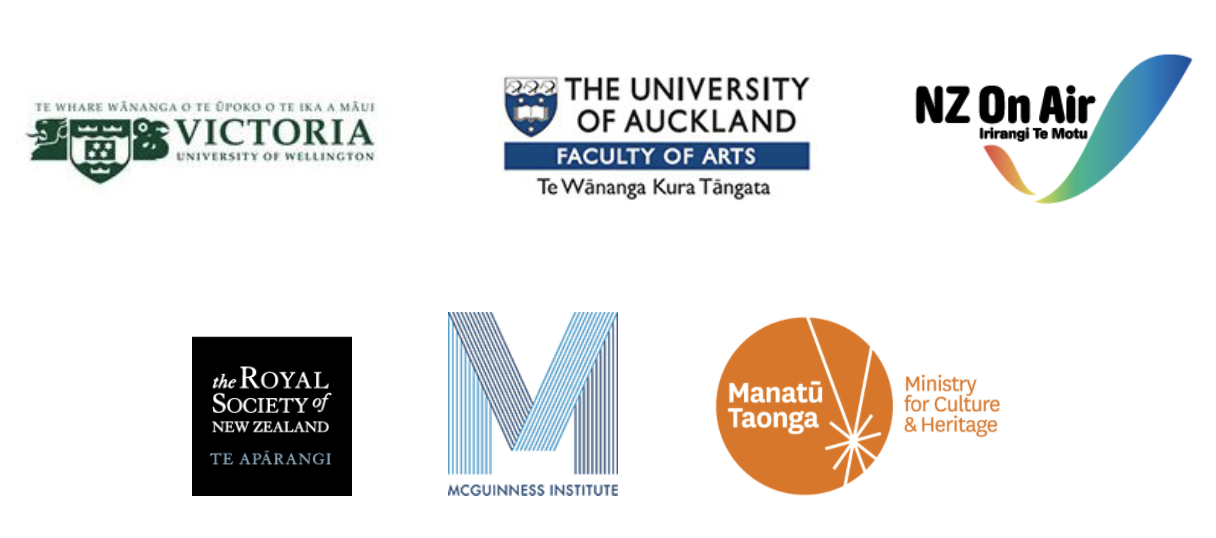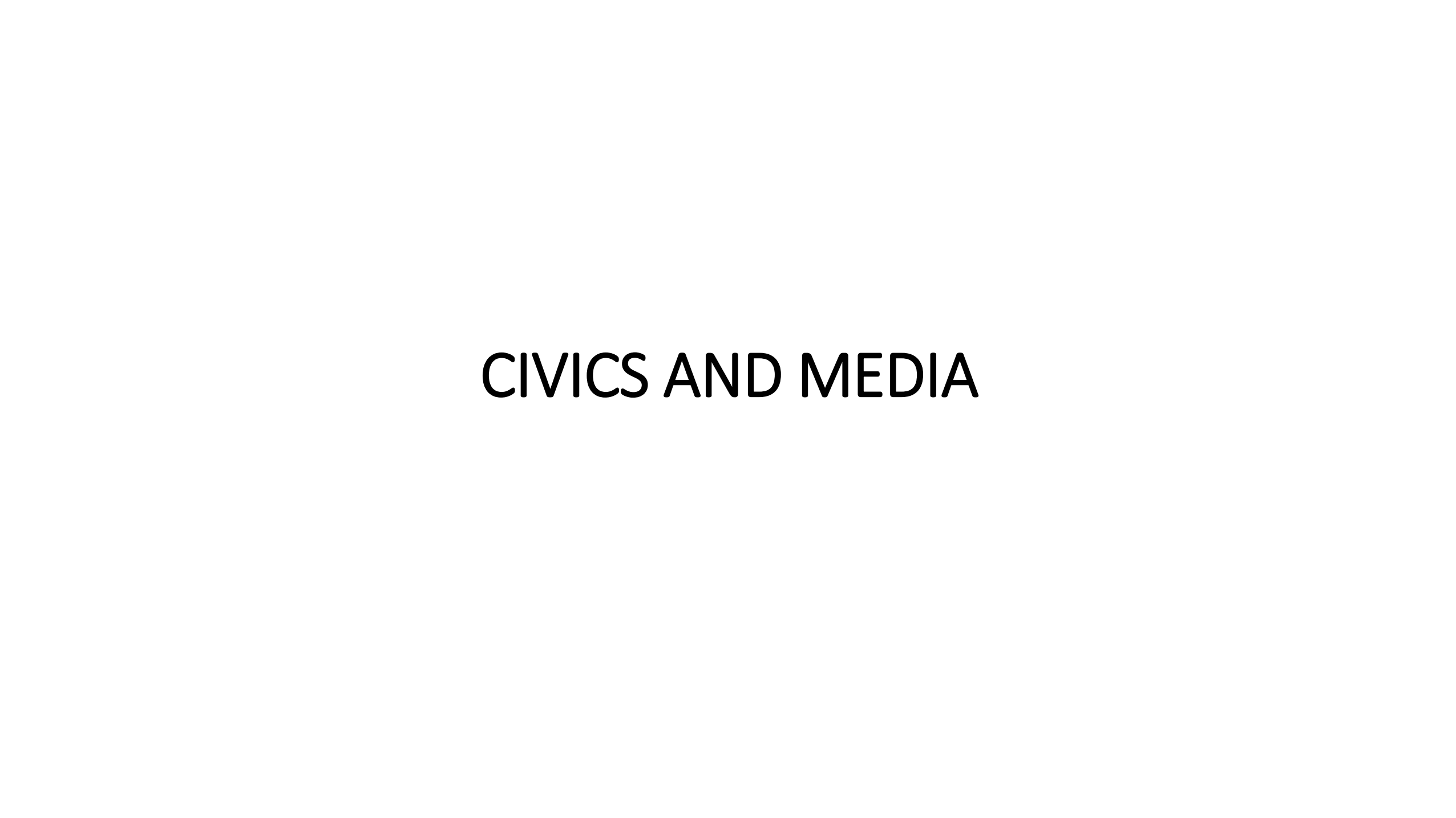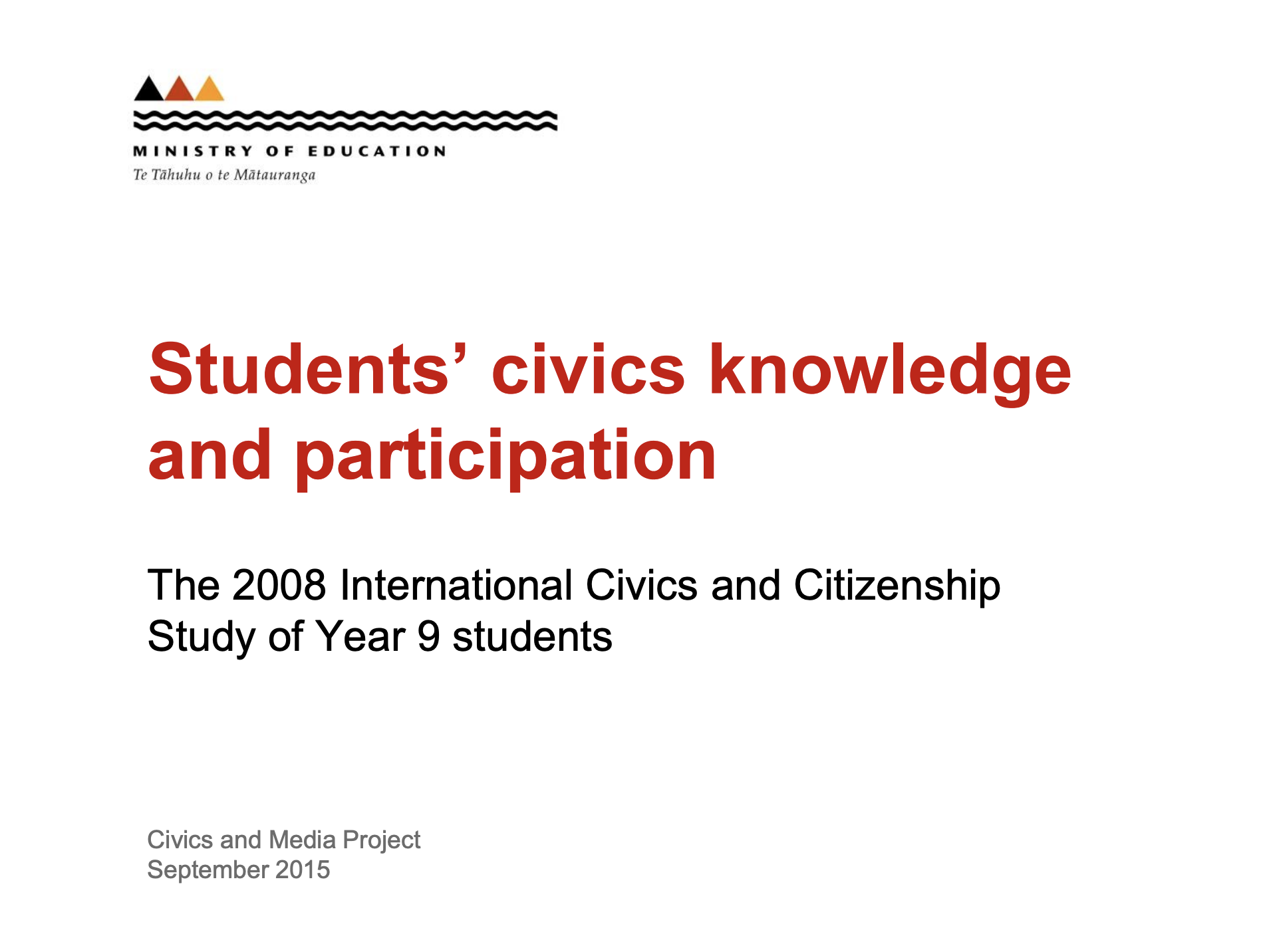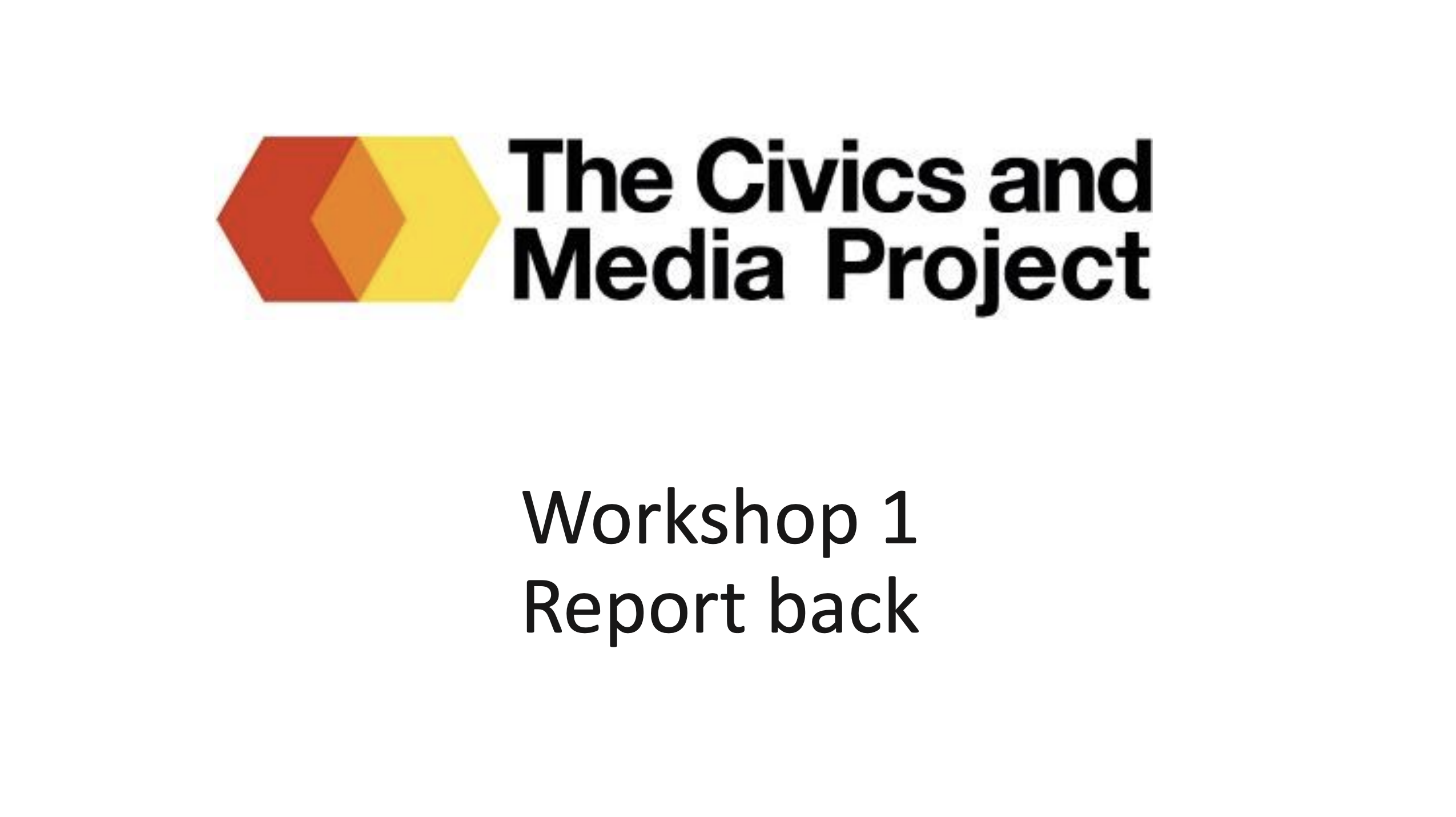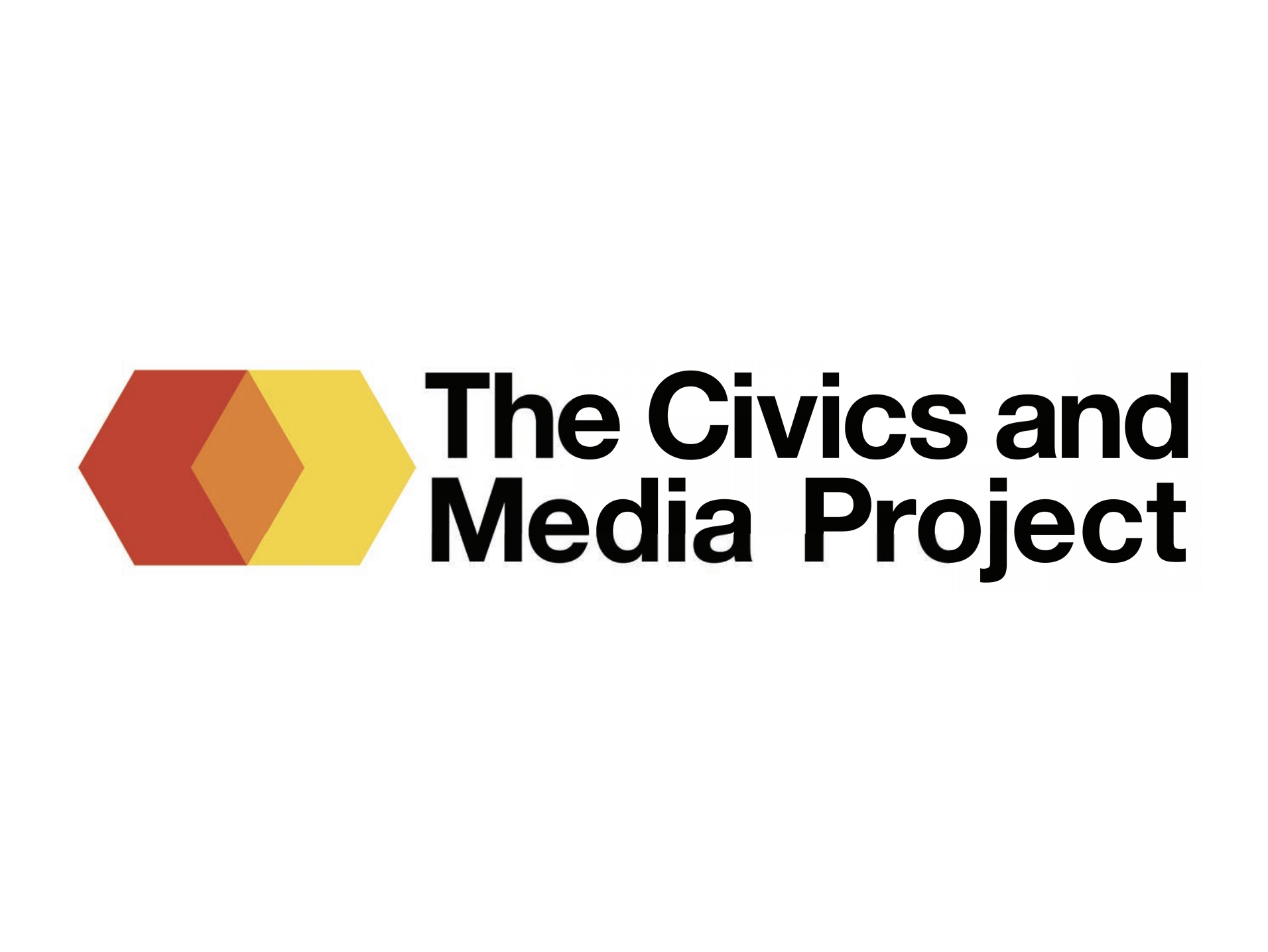The Civics and Media Project
September – November 2015
About
The Civics and Media Project is an initiative of Victoria University of Wellington, the University of Auckland, New Zealand On Air, the Royal Society of New Zealand, the McGuinness Institute and the Ministry for Culture and Heritage.
The purpose of the project is to inform and encourage public discourse and engagement regarding civics and media, with the ultimate aim of informing decisions by individuals, industry and institutions across society. Six agencies have joined together to examine whether citizens and communities have the news and information they need and want in a digital age and determine what a well-informed, civically engaged New Zealand will look like in 2030. The project undertook three workshops in the latter part of 2015; see their respective pages below.
Publications
- Three article on The Civics and Media Project in the May 2016 issue of Policy Quarterly.
- Proceedings of The Civics and Media Project: A report on the three workshops held in 2015 is now available to download on the McGuinness Institute publications page. The booklet is intended to contribute to the national conversation about civics and media by documenting our thinking about the nature of the issue, our vision for the future and some pragmatic ideas to get there. You can also view the booklet below.
- Video series of speaker presentations from Workshop 3 on The Civics and Media Project YouTube playlist
Workshop 1 – Collecting Data
What is happening with civics and the news media in New Zealand?
Wednesday, 2 September 2015, Wellington

Workshop 1 was hosted by the Victoria University of Wellington Institute for Governance and Policy Studies. Thank you to the speakers and participants for contributing your valuable insights and engaging in constructive discussion.
This background paper was provided to workshop participants to form the basis of discussion.
The first workshop of The Civics and Media Project saw 40 people come together to survey the current civics and media landscape in New Zealand. As the day progressed, speakers representing different stakeholders in this area unearthed many questions concerning New Zealand’s current direction and pointed to issues requiring further investigation. The intention of the day-long workshop was to establish a shared evidence base and to identify key themes for continued discussion, in order to ensure that New Zealand is heading in the direction of a well-informed, civically engaged society in 2030.
A summary of our findings from the day is available here.
Presentations
Local speakers included:
- Paul Satherley
- Brad Jackson
- Prof. John Burrows QC
- Scott Ussher
- Karl Lofgren
- Dr Gavin Ellis
- Dr Peter Thompson
- Paul Thompson
- Marcus Stickley
- Peter Griffin
The Civics and Media Project: Speaker presentations
Workshop 2 – Developing themes
What will a well-informed, civically engaged New Zealand look like in 2030?
Tuesday, 27 October 2015, Auckland

Workshop 2 was hosted by the University of Auckland Faculty of Arts.
Thank you to the speakers and participants for contributing your valuable insights and engaging in constructive discussion.
The second workshop of The Civics and Media Project was held at the University of Auckland and saw more than 50 participants come together to address three key questions:
- What roles do we hope and expect media to play in civic life in 2030?
- How will the notion of ‘civics’ and ‘civic engagement’ be expanded by 2030?
- How will education prepare young New Zealanders to be engaged citizens in 2030?
The university’s Acting Dean of Arts, Associate Professor Bernadette Luciano, welcomed the attendees by posing the question that would be the theme of the day: ‘What will a well-informed, civically-engaged New Zealand look like in 2030?’ She pointed out that the tools to engage with this future need to be developed for business, government and civil society, but most importantly, for the young people who will be the adults of tomorrow.
Workshop Convenor Dr Gavin Ellis, senior lecturer in Media, Film and Television at the University of Auckland, reminded the participants that they needed to disengage themselves from the nature of future technology and, paraphrasing the recently deceased American baseball player Yogi Berra, told them ‘it is hard to make predictions, especially about the future.’ He also pointed out that while civics knowledge has been found to be strong in high decile schools, it is ‘alarmingly low’ in low decile schools, posing a danger of creating an underclass.
A summary of the findings from the day is available here.
Presentations
Local speakers included:
- Dr Gavin Ellis
- Todd Krieble
- John Campbell
- Professor Annie Goldson
- Dr Maria Armoudian
- Mark Jennings
- Carol Hirschfeld
- Hannah Bartlett
- Dr Paul Taillon
- Bob Harvey
- Sandra Grey
- Ryan Mearns
- Associate Professor Carol Mutch
- Deanna Johnson
- Bronwyn Houliston
- Brent Coutts
- Dr Claire Meehan
The Civics and Media Project: Speaker presentations
Workshop 3 – Building knowledge
How do we ensure a well-informed, civically engaged New Zealand in 2030?
Thursday, 19 November 2015, Wellington

Workshop 3 was hosted by the McGuinness Institute and the Royal Society of New Zealand, and built on the outputs from Workshop 1 and Workshop 2. Thank you to the speakers and participants for contributing your valuable insights to the discussion.
The third and final workshop, which was held at the Royal Society of New Zealand, saw over 60 diverse participants come together to develop potential responses to the focus question for the workshop: ‘How do we ensure a well-informed, civically engaged New Zealand in 2030?’ The goal of the workshop was to spark a national conversation and document contemporary thinking around these issues.
A summary of our findings from the day is available here.
Presentations
Local speakers included:
- Dame Dr Claudia Orange
- Sylvia Nissen
- Jane Wrightson
- Dr Carwyn Jones
- Dr Helen Sissons
- James Dunne
- Tara Ross
- Louise Green
- Terry Burrell
- Dr Siouxsie Wiles
The Civics and Media Project: Speaker presentations playlist
The Civics and Media Project: Speaker presentations
The workshop PowerPoint presentation is available here.
The Civics and Media Project Partners
The Civics and Media Project is an initiative of Victoria University of Wellington, the University of Auckland, New Zealand On Air, the Royal Society of New Zealand, the McGuinness Institute and the Ministry for Culture and Heritage.
- The Institute for Governance and Policy Studies (IGPS) is a research institute of Victoria University’s School of Government, which fosters discussion, research and publication of current issues of domestic and foreign policy.
- The Faculty of Arts is the home of the humanities, social sciences, languages, and indigenous studies at the University of Auckland.
- NZ On Air is a government broadcast funding agency that invests in diverse local television, radio, music and digital media for New Zealand audiences.
- The Royal Society of New Zealand is an independent statutory organisation that promotes and advances science, technology and the humanities in New Zealand.
- The McGuinness Institute is a non-partisan think tank working towards a sustainable future, contributing strategic foresight through evidence-based research and policy analysis.
- The Ministry for Culture and Heritage advises on cultural matters, funds and monitors our national cultural and sports institutions and provides advice to ministers across the areas of arts, heritage, media and broadcasting. In doing so, the Ministry leads a vibrant and creative sector, which contributes to cultural wellbeing as well as generating educational, economic and social outcomes.
Workshop discussion papers do not themselves represent policy advice. The views, opinions, findings and recommendations expressed do not necessarily represent, and should not be reported as, those of the participating agencies.
See frequently asked questions here.
